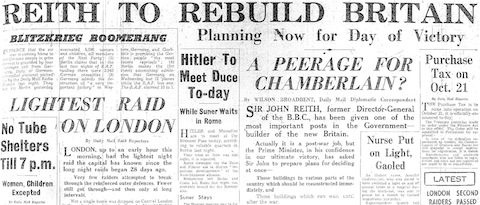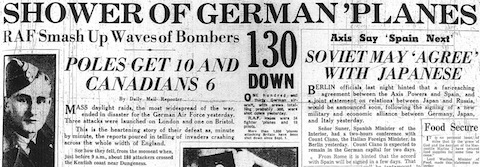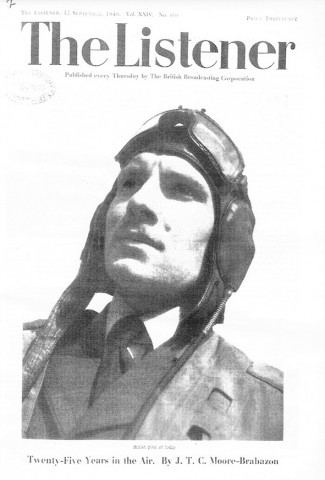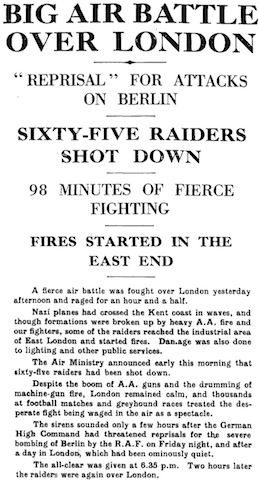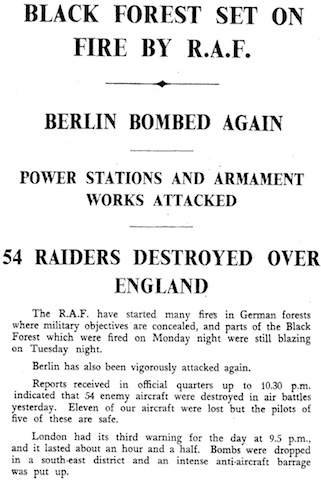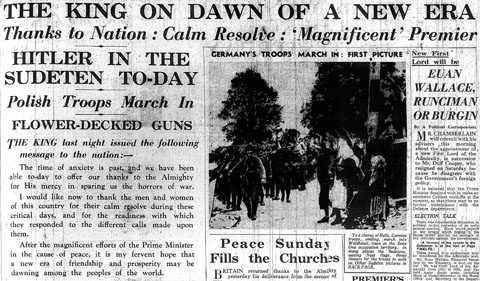Friday, 4 October 1940
Politics intrudes onto the front page of the Daily Mail today, in the form of a Cabinet reshuffle. But this being wartime, people are perhaps more likely to invest these normally mundane ministerial changes with great significance. The Mail certainly does, leading with the story that Sir John Reith, former Director-General of the BBC (and […]


